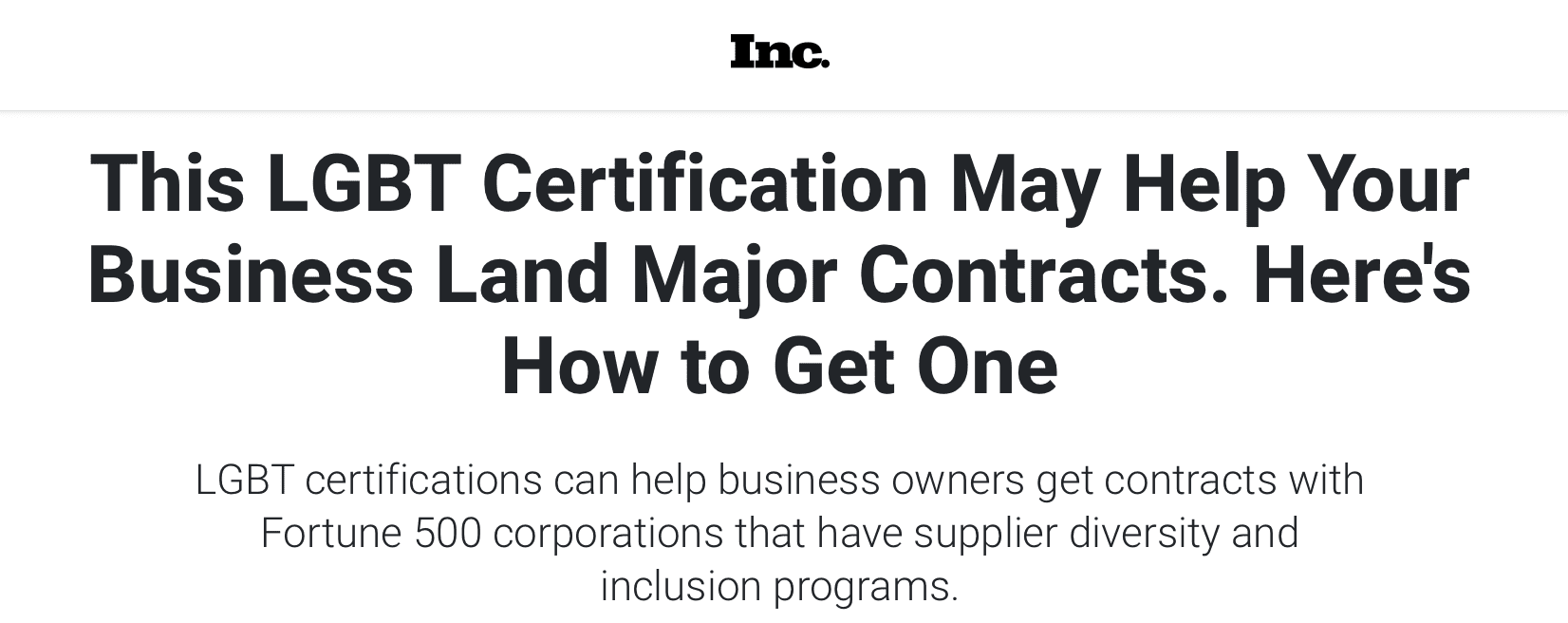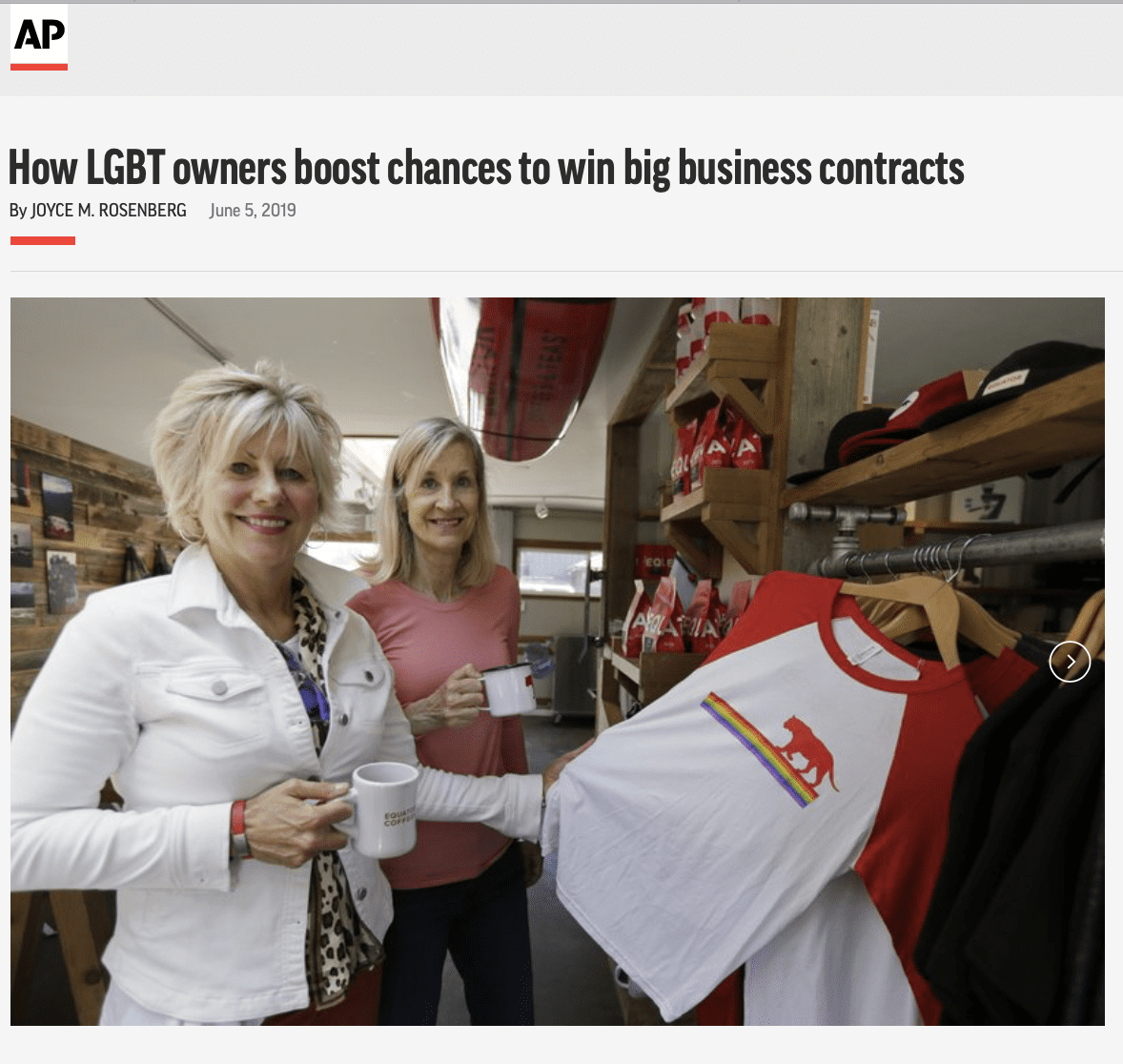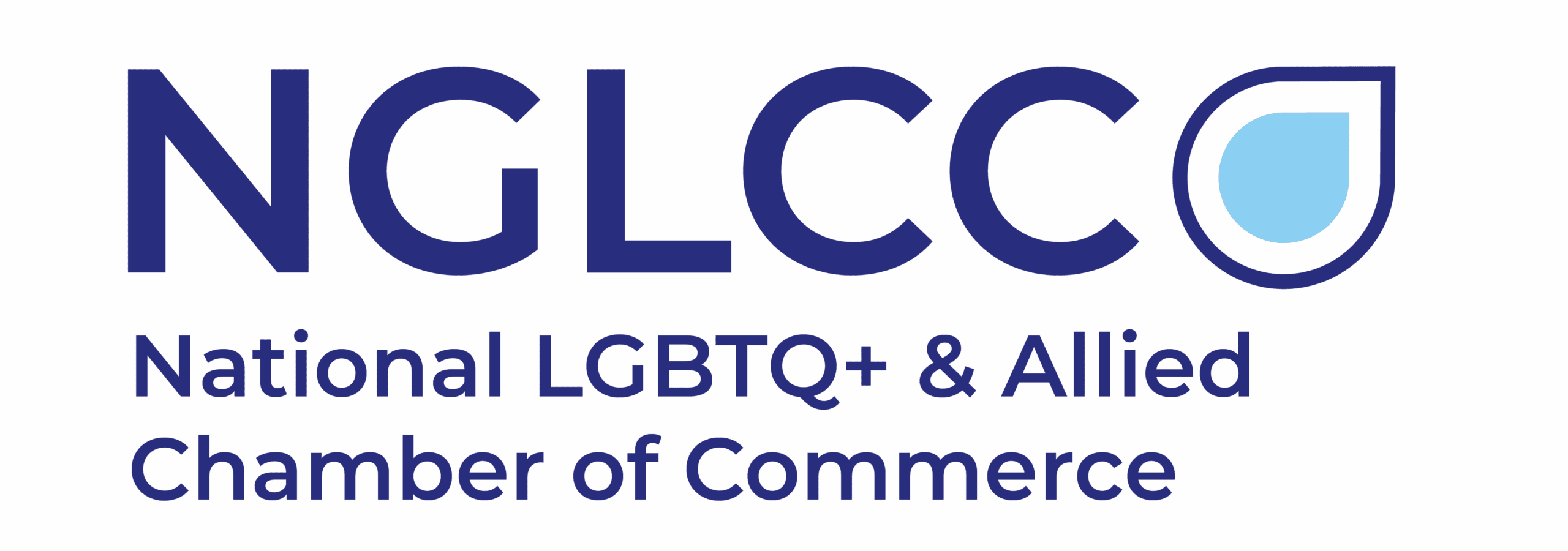
In the early days of his information technology company, Sam Lehman looked for ways to differentiate his business from its many competitors.
As he searched online, Lehman found the National LGBT Chamber of Commerce, or NGLCC, which certifies companies as lesbian-, gay-, bisexual- or transgender-owned, helping them be more visible to potential clients and customers. Nine years ago, Columbia Consulting Group got its LGBT-owned certification and in turn, a boost in sales.
“Within five years it doubled our revenue,” says Lehman, whose company is based in Stamford, Connecticut. “Eighty percent of our business comes from contacts I made through the NGLCC.”

A growing number of LGBT business owners are seeking certification that helps them get contracts with companies including Fortune 500 corporations that have supplier diversity and inclusion programs. Certification is a way for these owners to gain acceptance across the country, including places where they have encountered discrimination, says Justin Nelson, president of the NGLCC.
While same-sex marriage is now legal in every state, gay, lesbian, bisexual and transgender company owners may not be able to get credit in some states, and there are companies that don’t want to do business with them. But Nelson believes the economic power of the LGBT population will create more opportunities for these businesses.
“When we put an economic face on who LGBT owners are, people who think of us as this amorphous group and are willing to take our rights away then understand that we can have a company that has $180 million in revenue,” Nelson says.
To be certified, a company must be at least 51% owned, operated, managed, and controlled by an LGBT person or people. It must also go through an application process much like companies certified as owned by women, minorities, veterans or veterans who became disabled during military service. Depending on the certification, it is made by an organization like the NGLCC or the government. Nelson says the NGLCC has certified 1,200 companies across the country, and he expects more LGBT owners to seek certification.
A growing number of state and local governments include LGBT owners in their supplier diversity and inclusion programs.
The federal government does not have a target for how many of its contracts are awarded to LGBT-owned firms although it does have targets for companies owned by women, minorities, veterans, service-disabled veterans and economically disadvantaged businesses.
“Certification matters. It just does. It’s one more that thing that gets you in front of another group,” Russell says. She finds that large companies that make diversity and inclusion a priority want to buy from LGBT suppliers; when she mentions that San Rafael, California-based Equator is LGBT-owned, it catches purchasing executives’ attention.
Equator has gotten contracts after attending NGLCC events that include networking opportunities with big companies and also LGBT-owned firms. She also finds that certification helps win coffee-drinking customers.
Certification also helps convince big companies that the small, LGBT-owned business seeking a contract is worth hiring, says Jackie Richter, co-owner of Heels & Hardhats, a contracting company based in Byron, Illinois, that does projects including roadwork and land clearing.
Richter and her partner, Cyndi, have been sought out by Fortune 500 corporations. When she spoke at an NGLCC-sponsored event, supplier diversity executives approached her afterward.
“They were companies looking for vendors specifically like us,” Richter says.
Large companies with supplier diversity programs have started including LGBT-owned businesses in recent years. Having a diverse supplier base can be part of a corporate social responsibility strategy. But they’re also motivated by profit — being diverse and inclusive can make a company’s products and services more attractive to customers.
At Ford Motor Co., buying from LGBT-owned companies gives the automaker more opportunities to take advantage of new and innovative products and services, says Angela Henderson, head of Ford’s supplier diversity and inclusion program. And being in the program opens up possibilities for LGBT-owned firms and other participants. “They get the opportunity to work with our internal teams to bring to life their own innovations,” Henderson says.

LGBT-owned businesses don’t have to be certified to sell to big companies, but having the credential can bring them added benefits. At Ford, where companies need to be certified to be in its program, the automaker introduces participants to other big corporations, increasing their opportunities for contracts.
At Bayer, the pharmaceutical and agricultural manufacturer, the supplier diversity program offers mentorship to participants, allowing them to work with executives in different parts of the company, Senior Vice President Melissa Harper says.
Certification is a rigorous process; companies must prove they are truly 51% owned by a person or persons who are lesbian, gay, bisexual or transgender. They must supply documents including financial records.
Martin Solorzano found the process to be expensive but worth it. Solorzano got certification for his 3-year-old event staffing company, STAFFED, in April, and soon after was contacted by two companies that wanted to increase their supplier diversity. While building his New York-based company was the primary reason forseeking certification, he also wanted to increase his contacts within the LGBT business community.
“I want to network with these people. I want to be with like-minded people,” he says.
